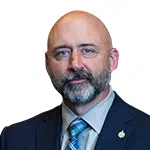A group of MPs that includes Bruce-Grey-Owen Sound Conservative MP Alex Ruff says it has been successful in bringing a number of Afghan women MPs to Canada,
“With the exception of a couple of the women and their families, we’ve got the vast majority of them out,” says Ruff.
Before American troops withdrew, and the Afghan government fell to a Taliban takeover in the summer of 2021, there were about 69 women in that country’s parliament. Since then, the Taliban has taken a long list of rights away from women, and anyone who opposes Taliban rule is at great risk.
In October of 2022, Ruff, Bloc member Alexis Brunelle-Duceppe, Green member Elizabeth May, the NDP’s Heather McPherson, and Liberals Marcus Powlowski and Leah Taylor Roy began working together in an informal group to bring the women to Canada.
Ruff says, “It was a very easily identifiable demographic of a group of women Afghan MPs that represent everything the Taliban detest.”
Ruff, who is a retired Colonel in the Canadian Armed Forces and completed two tours in Afghanistan (2007 & 2012) had cautioned the Canadian MPs during one of their meetings that if the government didn’t act quickly, the women could be killed before they had a chance to escape.
Not long after, In January of 2023, one of the women MPs, Mursal Nabizada was murdered. The Canadian MPs went public about their efforts following her murder, with the hope that bringing more attention to the issue would speed up action on it.
Ruff explains their reasoning, saying, “We’ve got to move on this quickly and the government needs to move quickly, and if not, we need to go public because we need to put pressure on them. There has to be consequences when there’s no movement, no progress on the files.”
Since then, they’ve quietly continued to work to bring the women here.
The group of Canadian MPs recently gathered at Pearson Airport to welcome Mursal Nabizada’s mother and brothers to Canada, an arrival that their advocacy and work helped make possible.
“We were working on approximately eight to 12 women MPs and their family members, so we’re talking dozens of total Afghans that we’ve been able to get to safety,” says Ruff.
There had been three immigration ministers since the fall of Afghanistan, with two during the span of time the group has worked on bringing the women here. First Marco Mendicino, then Sean Fraser, and now Marc Miller.
Ruff believes the women could have been helped sooner, explaining, “It’s frustrating for somebody like me that really feels that if you’re willing to accept a bit more political risk and personal risk as the minister, I really feel it didn’t require two years. I’m not exaggerating when I said I could do it in two weeks. I literally believe I could have, if I was the minister of immigration. It just takes political will.”
- MP Alex Ruff Says Afghans Who Aided Canada Need Safety
- Ruff Supports New Parliamentary Committee On Afghanistan
In 2021, Ruff and other opposition MPs called on the government to create a special parliamentary committee to review the events related Afghanistan’s fall to the Taliban and the Canadian government’s contingency planning in relation to it as well as its evacuation efforts. Ruff sat on that committee and it released 37 recommendations in June of 2022.
He says Canada could make some improvements if it wants to be a leader and stay engaged on the world front.
“We’re always going to be working with locals and we’re going to develop relationships and we’re going to continue to push for equality and democratic rights for those citizens, well, ultimately, then Canada better have a plan to actually take care of those individuals that are helping us help them, whether that be interpreters, cultural advisers, etc.”
He adds, “If for whatever reason, things start going in the wrong direction like what happened in Afghanistan, the warning signs were there months, if not years in advance, and you need to take the appropriate action sooner to have those safeguards and measures in place so that the horrific tragedy and chaos that happened when Kabul fell could have easily been mitigated and a lot more people to safety sooner than the way that it actually happened.”
Ruff says, “And secondly, is that really, ministers and governments need to be accountable and they need to push the bureaucracy of government and the public service at all times, because the public service is there to do phenomenal work, but ultimately, they are very risk-averse. That is why politicians or in this is case the government, i.e. those that have the privilege of being in government are there.”
Ruff says, “If you’re a minister of the crown, it’s your job to balance these things off, and not just say , ‘oh it’s too difficult.’ That’s what I find extremely frustrating. I am biased by my military experience where I’m used to being in the business of making decisions that is all about balancing risk and trying to come up with the best solution going forward.”
Ruff says in general, the women and families they helped get to Canada were either in Afghanistan or Pakistan. It’s estimated between three and four million Afghans fled to Pakistan, and because of that, Pakistan eventually began deporting people back to Afghanistan. The group urged the government to share its intent with Pakistan to bring the women to Canada.
“Obviously these former Afghan women MPs if they get deported will be in the spotlight of the Taliban,” says Ruff.
He adds, “The good news is the majority of them are all to safety now.”
Ruff says, “It was a really heartwarming occasion to meet with Mursal’s mother and brothers. Their optimism is palpable. I’m still optimistic that out of these former Afghan women MPs that are now safely in Canada, they will be key to the future of Afghanistan getting back to becoming, eventually, down the road a democratic country where women and girls have the same rights as everybody else.”
More from the archive:







